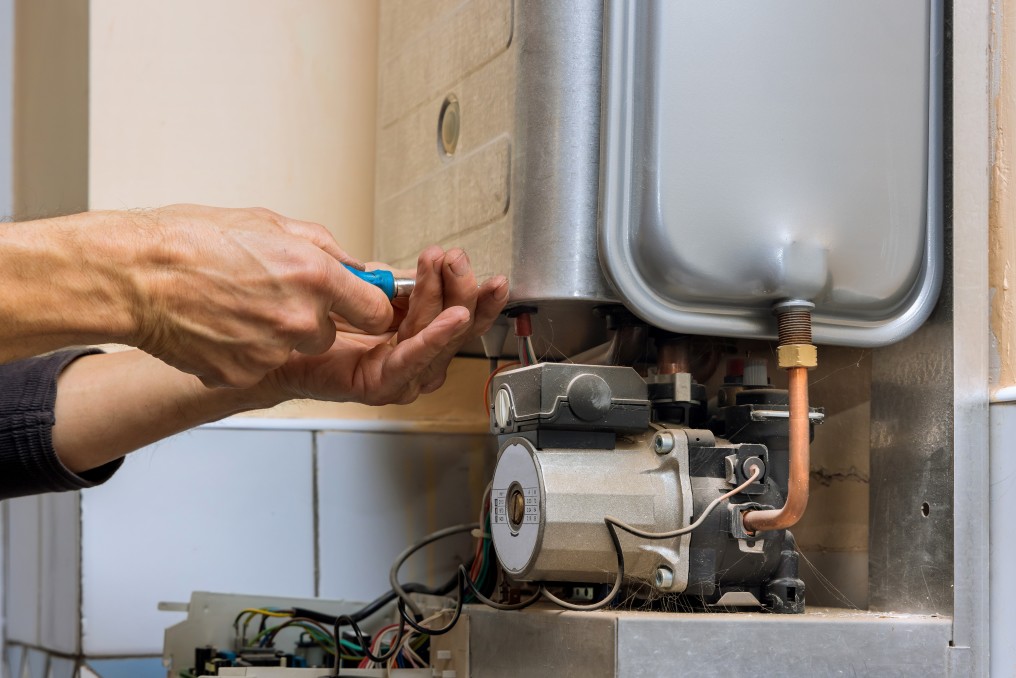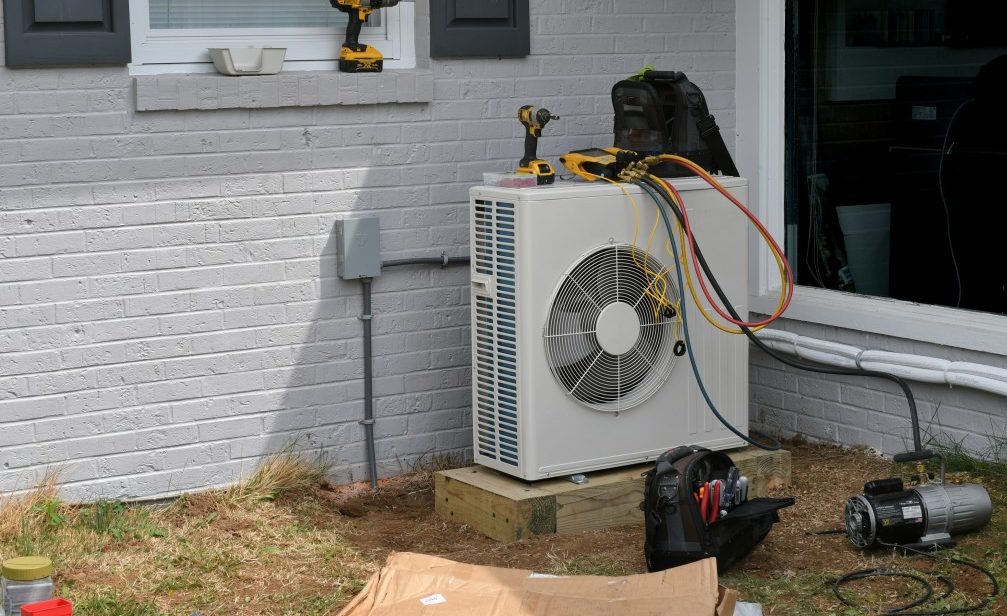Heat pumps have been making the news as greener modern alternatives to the trusty old gas combi boilers. The UK government has offered homeowners money to install one. But are they really any better? And if so, how?
What is a heat pump and how does it work?
Heat pumps have a long history. Lord Kelvin had already worked out the technical principles for operation by 1852. Home use has typically been used for cooling, rather than heating.
A heat pump is very much like your kitchen fridge or an air conditioning unit. Refrigerant moves through pipes, evaporating water or condensing air as required. But while your AC unit can only cool an area, a heat pump can both cool and heat your home.
Heat pumps typically come in three flavours:
- An air source heat pump extracts heat energy from the air and is the cheapest to install
- A ground source heat pump extracts geothermal energy from the ground
- A water source heat pump extracts heat energy from a water source
Heat pumps typically have a heating element which can be called into action when a significant amount of hot water is needed, for example when you take a shower.
How do gas boilers work?
Gas boilers work by burning natural gas to create heat. It’s as basic a form of heating as you can get, not too dissimilar from burning wood in a stove. The heat is then used to warm up water, which is circulated through your home’s pipes and radiators to provide warmth.

What makes heat pumps better than a gas boiler?
Heat pumps have several benefits over gas boilers:
- Efficient
-
Heat pumps are more energy-efficient than gas boilers, saving you money on your energy bills. This will prove essential as energy prices continue to soar. Your electricity bill will increase slightly, but the cost to warm (and cool) your home will reduce significantly, saving you money in the long run.
- Greener
-
Heat pumps don’t burn fossil fuels directly, so they do not produce any emissions. This obviously makes them a more environmentally friendly option. Of course, the electricity your pump uses may be coming from a fossil fuel-powered power plant. But you can mitigate that by using an energy supplier committed to 100% renewable energy generation.
- Quieter
-
Heat pumps are not as noisy as gas boilers, making them a better choice for people who want a quiet home.
- Space
-
Heat pumps are usually installed outside your main home, in your garden for example. This frees up some much-needed cupboard space.
Are heat pumps expensive?
Yes!
The initial cost of a heat pump is much much higher than that of a gas boiler. It requires specialist installation. And you’ll have to repair the damage left behind when you remove your old gas-fired boiler. It’s not a trivial undertaking.
Depending on the ‘flavour’ of heat pump you install, installation price varies from around £8000 for an air source heat pump to around £40,000 for a ground source heat pump at the time of writing.
To help with the installation costs, the UK government created the ‘Domestic Renewable Heat Incentive’. It ends on 31st March 2022 and is designed to reimburse you over several years. That scheme was considered a major flop and it had limited uptake.
But the new Boiler Upgrade Scheme (BUS) for England and Wales starts in April 2022. It aims to be more installation-cost friendly, offering homeowners up to £6000 upfront. BUS won’t cover the full cost of installation. Instead, it matches the typical cost of replacing your existing boiler with another gas boiler.
Whether your house value will increase as a result of installing a heat pump is yet to be determined. However having a new economical heating system is always a plus point when selling. And the very real possibility that gas boilers are banned by the government will definitely make homes that have already been through the upgrade progress more attractive to buyers.
Which system is best for you?
As always: it depends.
Installing a new heating system is expensive. Replacing your existing gas boiler with a heat pump will take up a large sum of cash – most likely coming from a combination of savings and loans.
You’ll probably have to decide between installing an air source heat pump or solar thermal panels. But fortunately, the BUS applies to both heat pumps and solar thermal panels.
If the UK is to meet ambitious carbon-reduction targets homeowners will have some tough choices to make in the coming years. Unfortunately that is the price we all have to pay
In England and Wales using the BUS certainly makes installing an air source heat pump very attractive, and could potentially add value to your home over the long term, as well as saving you money as energy prices increase.
For British homes, where the temperature is moderate to cool year-round, a heat pump will make a positive difference to your pocket in the long term. The choice of whether to install a cheaper air source heat pump or a more expensive ground or water source heat pump will determine your outlay and your grant subsidy.
If you live in a flat your choices will be limited to what is allowed by the freeholder and other leaseholders. And if you’re renting your property you’re out of luck: the BUS is only open to homeowners.
If the UK is to meet ambitious carbon reduction targets, one thing is for sure: homeowners will have some tough choices to make in the coming years.

